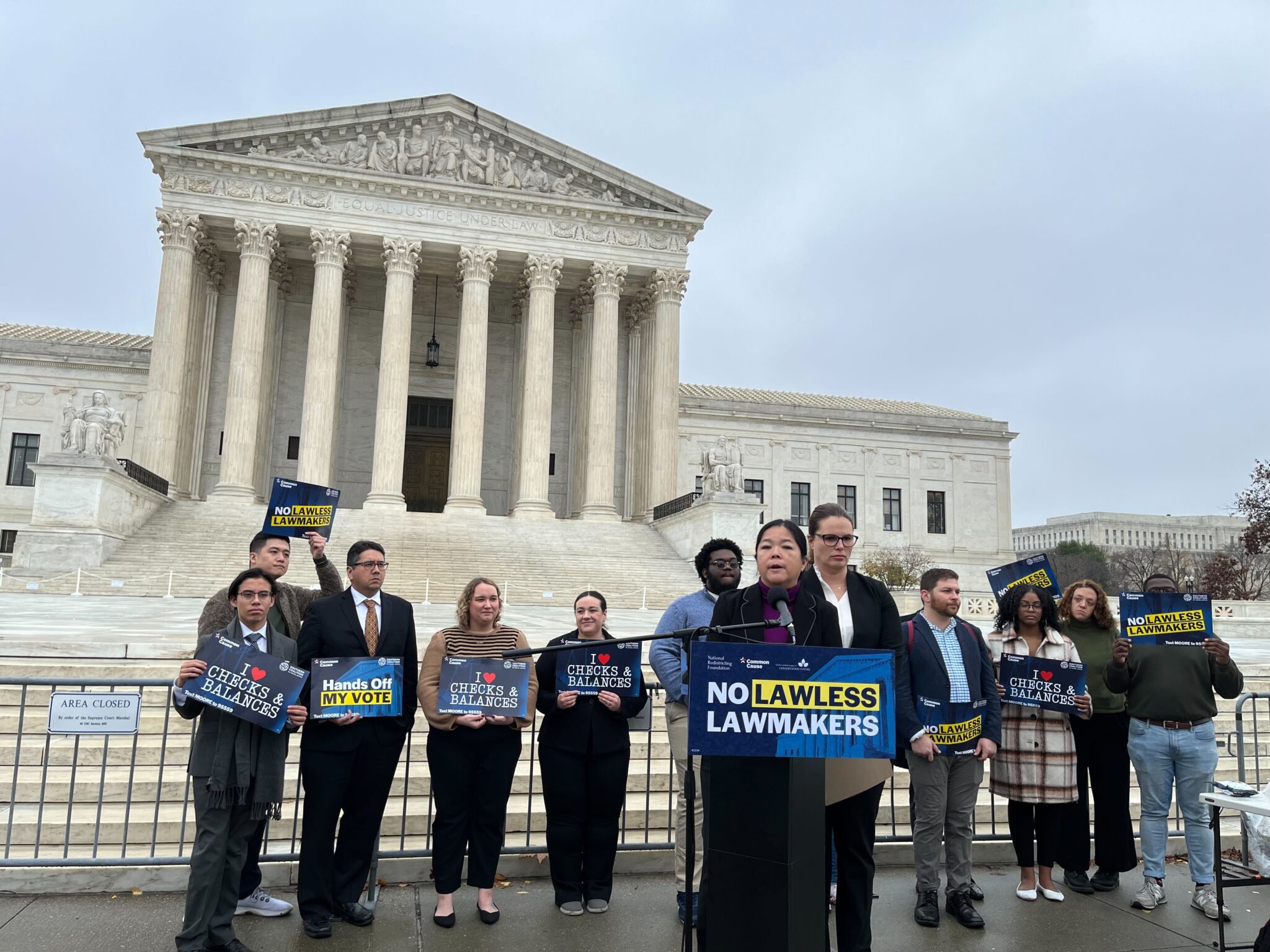Press Release
Undoing parts of BCRA would empower special interests at a cost to public
Related Issues
The Supreme Court today is scheduled to hear oral arguments in a case — Wisconsin Right to Life vs. The Federal Election Commission — that could have serious implications for the future of campaign finance reform in this country. The Court is being asked to approve an exemption to the Bipartisan Campaign Reform Act (BCRA) law that would once again permit unlimited, unregulated dollars to pay for broadcast ads pretending to be about pending federal legislation, but really meant to influence elections.
“The Supreme Court must approach this case with great care and wisdom,” said Jon Goldin-Dubois, executive vice president of Common Cause.
BCRA, which Common Cause helped to pass, bans all soft money, unlimited contributions from corporations, wealthy individuals and unions to the national political parties and federal candidates. BCRA also requires that any radio and TV ads that mention the name of a federal candidate 60 days before an election and 30 days before a primary must be paid for with legally limited, fully disclosed contributions that come from individuals.
“As a consequence of BCRA, political parties in the 2004 and 2006 elections sought small donations from average people, and hundreds of thousands of Americans were encouraged to participate in the political process,” Goldin-Dubois said. “Undoing parts of BCRA threatens to take average people out of politics and to increase the power of deep-pocketed special interests.”
The case before the Supreme Court concerns radio and TV ads paid for by Wisconsin Right to Life (WRTL). At issue are radio and television ads scheduled to run shortly before a US Senate election in 2004 that mentioned Democratic Wisconsin Senators Herb Kohl and Russell Feingold by name and called on them to oppose any filibuster blocking votes on President George W. Bush’s Supreme Court nominees. Senator Feingold was running for re-election that year, and WRTL went to the courts, asking for an injunction to prevent the Federal Election Commission from enforcing BCRA and banning the ads from being broadcast. The ads would have not been permitted because of their timing and subject matter and because WRTL, according to court records, had accepted hundreds of thousands of dollars from for-profit companies, and under BCRA, would be unable to pay for the ads using these corporate donations. WRTL’s political action committee also was working to defeat Sen. Feingold and had made the filibuster a centerpiece of its opposition message.
Last year, a three-judge federal court in Washington ruled that WRTL’s 2004 ads should have been exempt from BCRA’s restrictions since they were not about influencing an election, only influencing a legislative matter before Congress. The FEC appealed the court’s decision, and now the Supreme Court will be considering the case.
In its friend-of-the-court brief, Common Cause, along with a number of campaign finance reform groups argued that the WRTL ads were clearly designed to influence viewers and listeners to vote against Feingold. Their amicus brief warned that carving out an exemption for so-called “grassroots lobbying” broadcast ads ostensibly about congressional issues right before an election would mark the return of millions of dollars of unregulated special-interest money funding sham political ads disguised as ads about legislative issues.
“BCRA does not impede any group’s ability to advocate for legislative change,” Goldin- Dubois said. “But it does ensure that broadcast ads aired before an election that mention the names of federal candidates are paid for with “hard” money – legally limited and disclosed funds that come from individuals. To say that BCRA abridges anybody’s free-speech rights is simply not true.”
